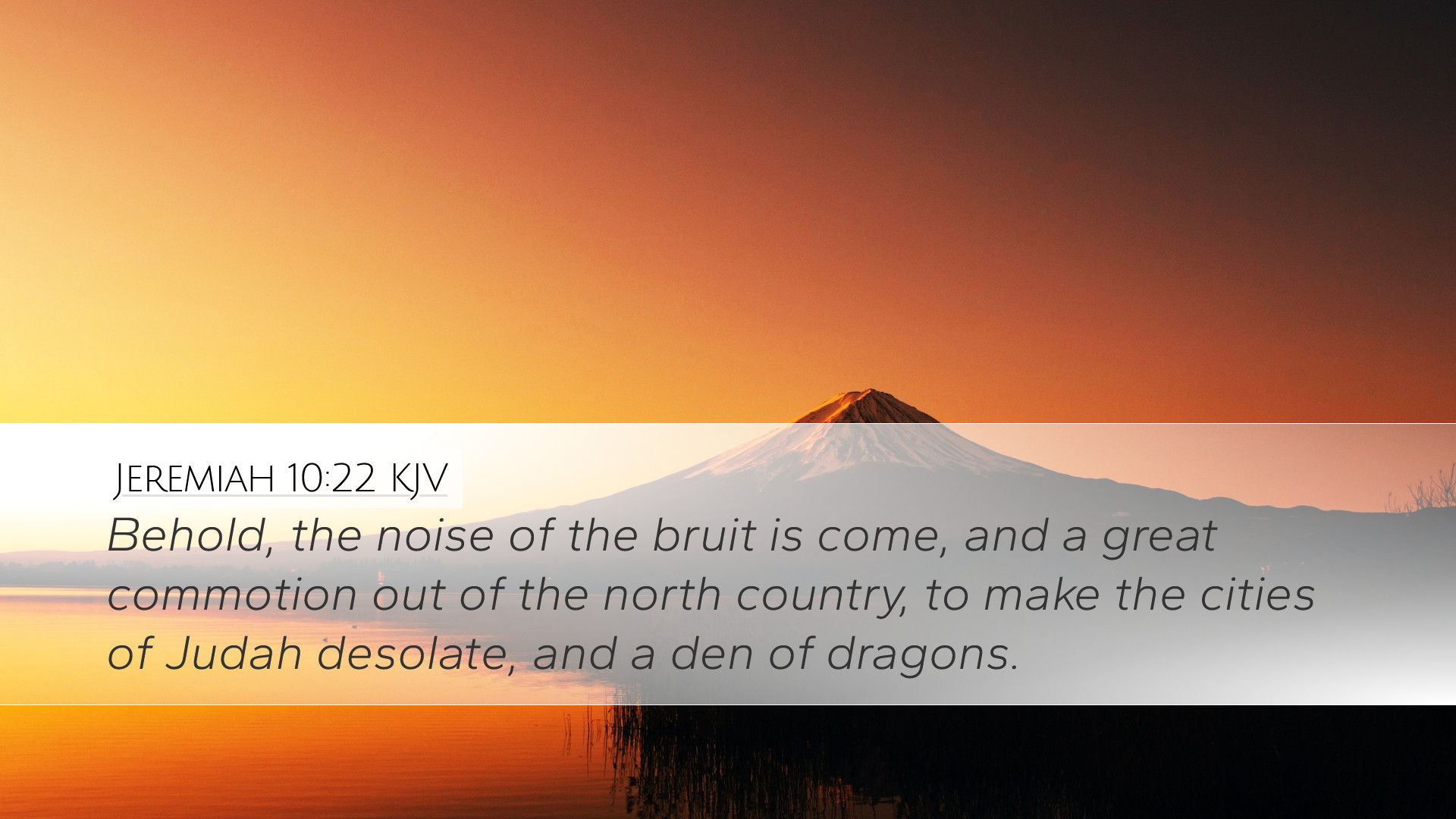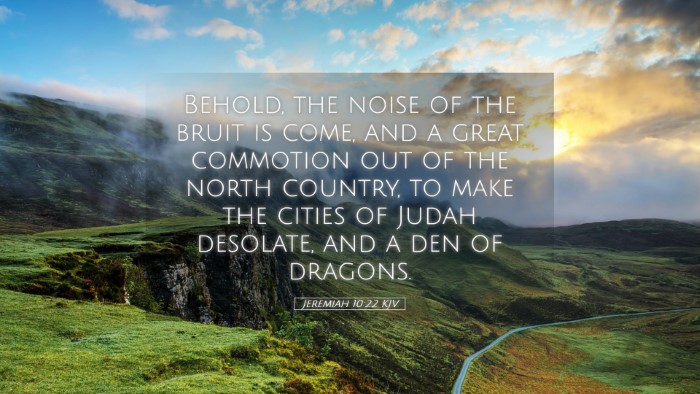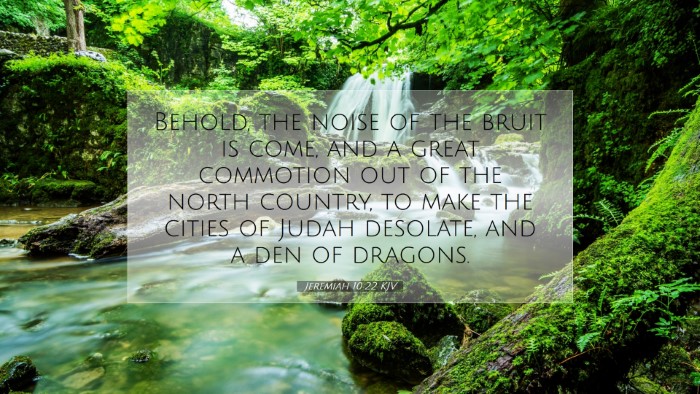Commentary on Jeremiah 10:22
Jeremiah 10:22 states: "A voice declares from Dan, and proclaims disaster from the hills of Ephraim." (NIV) This verse serves as a vivid illustration of the prophetic warning delivered by the prophet Jeremiah regarding the impending calamities that would befall Israel and Judah due to their unfaithfulness and idolatry.
Contextual Background
The Book of Jeremiah is set against the backdrop of a nation in moral and spiritual decline. As the prophet often warns, the people have turned away from God, embraced false gods, and ignored the call for repentance. This verse encapsulates the cry of distress that comes from the north, indicating the invasion by Babylon, who, like a storm, would bring destruction upon the land.
Insights from Public Domain Commentaries
Matthew Henry's Commentary
In his commentary, Matthew Henry emphasizes the significance of geographic locations mentioned, particularly Dan, which in the north symbolized the beginning of the path to disaster. The voice from Dan signifies an alarming message, foreshadowing the national crisis emerging from the depths of the land. He notes:
- Prophetic Announcement: Henry remarks that the prophetic nature of this announcement serves to alert the people about the moral decay leading to divine judgment.
- Symbolism of Ephraim: Ephraim, representing the northern tribes of Israel, is called to bear witness to the calamity - indicating that the judgment affects all, not just a particular region.
- Call for Attention: The urgency of the voice signifies that the people ought to heed the warnings of impending destruction in their midst.
Albert Barnes' Notes on the Bible
Albert Barnes provides a deeper exploration of the implications embodied in this verse, focusing on the sociopolitical dynamics between the Northern and Southern kingdoms of Israel:
- Disaster Proclamation: Barnes emphasizes that the disaster mentioned is both literal and metaphorical, highlighting the spiritual disarray and the consequent physical turmoil.
- Divine Pronouncement: He interprets the “voice” as representative of divine communication to the prophets, underscoring God’s active role in revealing His intentions to His people.
- Call to Recognition: Barnes alludes to the need for recognition of the signs of impending disaster as a culture-wide failure to engage with prophetic warnings, thus encouraging leaders to guide their communities towards repentance.
Adam Clarke's Commentary
Adam Clarke expands on the prophetic implications and the historical context of the passage, drawing connections that resonate with both contemporary and historical audiences:
- Historical Context: Clarke outlines that the reference to Dan connects to the worship of golden calves, rooting the calamity in the people’s idolatrous practices.
- Spiritual Implications: He notes that the disaster is not only physical; it reflects spiritual decay, emphasizing that calamity follows rebellion against God.
- Warning to Leaders: Clarke warns that leaders must be vigilant against false comforts derived from economic or political security that ignore spiritual truths.
Theological Reflections
Jeremiah 10:22 evokes profound theological reflections relevant for pastors, students, and scholars today:
- God’s Sovereignty: The notion of God actively communicating warnings through prophets underscores His sovereignty and desire for His people to return to Him before judgment.
- Consequences of Idolatry: The verse serves as a timeless reminder that the abandonment of true worship leads to dire consequences, making it a relevant discussion point in addressing modern idolatry.
- Call to Repentance: The persistent theme of repentance is echoed in this scripture, challenging contemporary believers to heed warnings and seek restoration.
Conclusion
Jeremiah 10:22 stands as a poignant reminder of the consequences of spiritual neglect and the need for vigilance against idolatry. The insights drawn from the commentaries of Matthew Henry, Albert Barnes, and Adam Clarke reinforce the importance of recognizing God’s voice amidst the chaos of life and responding with genuine repentance and faith. This verse calls not only for reflection but also encourages action towards rebuilding a faithful relationship with God.


